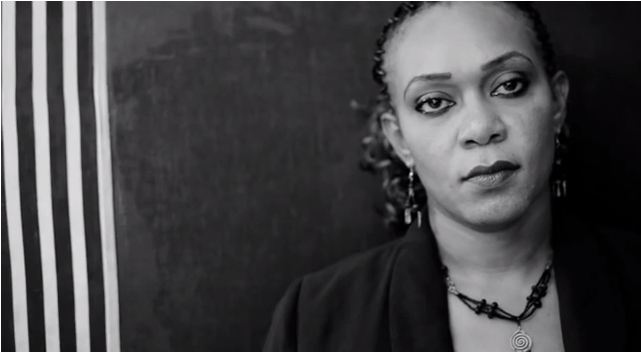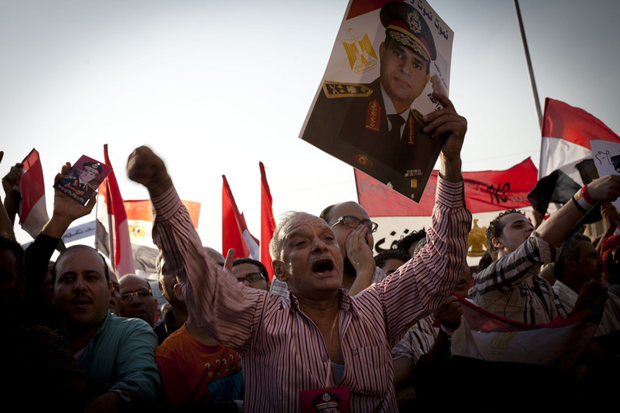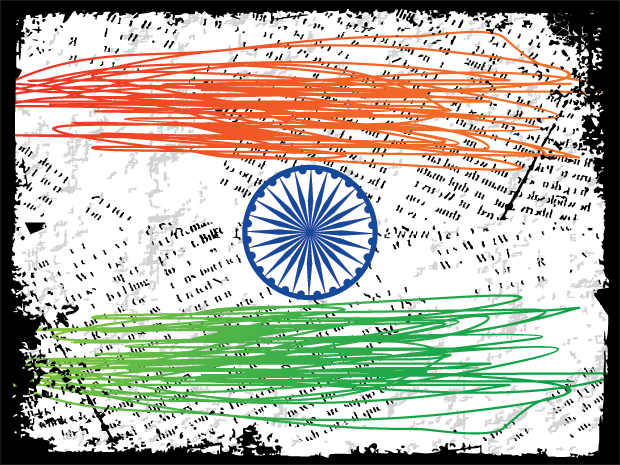16 Sep 2013 | News and features, Politics and Society, Religion and Culture, Sudan

A shot from the video Amira Osman recorded urging Sudanese people to stand up to Public Order Laws.
Sudan’s Public Order Law (POL) is making headlines after female activist and engineer Amira Osman was arrested on August 27 in Jebel Awliya, a suburb of Khartoum, for refusing to pull up her head-scarf. Amira is now facing trial for “indecent conduct” under Article 152 of the Sudanese penal code, and risks being punished with flogging and/or bail. Her next trial is scheduled for September 19.
In a calculated act of defiance against one of Africa’s most oppressive regimes, Ms. Osman recorded a video where she described the demeaning manner in which she was treated by Public Order Police (POP) and invited Sudanese citizens (men and women) to attend her trial, saying: “if you think that the Public Order Law is against you, come to Jabel Awliya’s Court…and let’s put the Public Order Law on trial”.
The first session of her trial was on September 1. It was attended by almost 100 regular citizens, civil society members and women’s rights activists. The trial was postponed when the judge did not show up due to sickness.
Osman’s trial is reminiscent of the POL case of Sudanese journalist Lubna Hussien, who captivated national and international attention in July 2009 when she and 12 other women were arrested in a restaurant in Khartoum for wearing trousers.
Public order laws or social control laws?
Sudan’s POLs date back to 1983. They were referred to back then as the September Laws, imposed by the authoritarian regime of President Jafaar Numeiri. He introduced Sharia corporal punishments (hudood) for acts such as consuming alcohol, stealing, gambling or mixing between the sexes. These laws fueled the national discontent that led to the uprising that toppled Numeiri in April 1985.
When the current regime took power in 1989 following a military coup, it introduced an extensive array of Public Order Laws. With the intention of creating an Islamic State, the National Islamic Front (as it was called back then) initiated a detailed “Civilization Project” that reached into every aspect of Sudanese social life, and placed restrictions on long entrenched traditional norms such as private parties with music, mixing between the sexes and the making and consumption of alcohol.
However, no other aspect of the Public Order Regime has altered the daily lives of Sudanese women like Article 152 of the Criminal Act of 1991 that says: “(1) Whoever commits, in a public place, an act, or conducts himself in an indecent manner, or a manner contrary to public morality, or wears an indecent, or immoral dress, which causes annoyance to public feelings, shall be punished, with whipping, not exceeding forty lashes, or with fine, or with both; (2) The act shall be deemed contrary to public morality, if it is so considered in the religion of the doer, or the custom of the country where the act occurs.”
Human rights lawyers have consistently pointed out that Article 152 is vague and does not define what is meant precisely by indecent clothing or indecent behaviour. It thus leaves a lot to be interpreted by POP and the judges in the Public Order Courts.
Prominent human rights lawyer Nabeel Adeeb recently commented in an op-ed that,”what is seen by me as indecent attire may be seen by someone else as decent”. He adds that from a religious perspective it’s hard to impose one uniform on women because it depends on their personal understanding of their faith. “Judges should not be god’s representatives on earth.” he says. Society’s understanding of “decent” attire is a constantly shifting concept, and Sudan’s diversity makes this even more complex and a matter that should not be decided in the courts. “It is an issue left to families and religious leaders, because it is linked to education and upbringing and not the law,” he concludes.
Poor and fleeing women targeted
No national statistics are available to shed light on how many women or men around Sudan are impacted by the Public Order Regime, however in 2008 the head of the Public Order Police in Khartoum said that in that year 41,000 persons were stopped under Article 152 and signed promissory documents “not to wear indecent clothing”.
Most POL cases are processed quickly in Public Order Courts without the presence of lawyers, with no due process and with judges who lack proper legal training.
Women’s rights activists who have been fighting this law for years point out that the stigma associated with being arrested by POP drive many women, who are less knowledgeable about their rights and more concerned about their reputation, into accepting summary trials in Public Order Courts where they are often flogged and/or have to pay a bail .
The women most impacted by the POL are not the urban educated women like Amira and Lubna, but rather the thousands of women fleeing conflicts and hard conditions in other regions such as the Nuba Mountains and Darfur, and who have to support their families by working in Khartoum’s informal sector selling tea, food or making a local millet-based beer called marisa.
Monim Adam, a human rights lawyer, says: “in most cases these women cannot afford the bail that can go up to $200, and they end up serving prison terms of up to one month. Many of them also endure sexual harassment that goes as far as rape, from the Public Order Police officers who have limited oversight”.
A prominent case that’s also running in the courts right now is that of Nuba Mountains woman Awadiya Ajabna. She was shot dead in March 2012 when she interfered as the POP were harassing her brother outside their family home, accusing him of being drunk. Ajabna died hours after POP fired shots that also injured her mother and sister.
This is not the first documented case of death at the hands of POP, as in 2010 a tea lady, Nadia Saboon was fleeing what is referred to as a Kashaa (a raid or sweep) by the POP. Saboon fell on a piece of metal and died due to the injury sustained. Raids and confiscations of the equipment of tea ladies by POP are a common practice in Khartoum, and it is done under the premise of “preserving the appearance of the public domain”.
Sudan has undergone severe limitations on fundamental rights after the separation of South Sudan in July 2011. In the last two years the Islamist regime of Omer Al Bashir has clamped down on freedom of the press, freedom of association and assembly, by closing newspapers and pro-democracy civil society organizations, and violently clamping down on peaceful protest.
16 Sep 2013 | Egypt, News and features, Politics and Society

A protester holds a portrait of General Abdel Fattah al-Sisi during protests in July. (Shawkan / Demotix)
While the situation in Egypt is complex and unpredictable, there can be little doubt that General Abdel Fattah al-Sisi and his men are in charge of a country in deep crisis. On several occasions, they have handled this crisis with violent crackdowns that have attracted widespread, international condemnation. It appears they are now looking for some outside help to polish up their image as protectors of the state.
Industry publication AdAge reported last week that Egypt’s interim military government is seeking support from western public relations companies.
“The government (…) is in talks with a handful of firms that have strong public-affairs capabilities in the U.S. and Europe, and has issued at least one global RFP out of London, according to people familiar with the matter”, the publication said.
But with PR being a quickly growing industry, and a sea of options out there, it can be difficult to even know where to start browsing. Egypt, however, is not the first country to seek the help and guidance of western PR.
We have put together a list of companies that are not strangers to working for regimes with questionable human rights records.
- London-based Bell Pottinger, once described as a ‘firm synonymous with this international spin’ has worked with everyone from Bahrain to Belarus, Sri Lanka and Yemen. But a word of advice, their services don’t come cheap. In 2012 it was reported that Bahrain’s royal family have spent £7.5 million on contracts with the firm. On the other hand, whereas American PR firms have to declare their dealings with foreign governments to American authorities, such regulations do not exist in the UK.
- Where is the first place people go for information on a country, if not the world’s favourite user-generated encyclopedia? With Egypt’s current Wikipedia page not necessarily painting the military government in the best light, it’s helpful to know that Washington-based company Qorvis have reportedly helped clients like Saudi Arabia polish up theirs. For people seeking more in-depth knowledge, the firm has also been known to place favorable reports regarding their clients.
- Mainstream media is one of the best ways to advertise your country as the new it-holiday destination or a booming business hotspot, or even get a policy point across. A PR firm can help you do that. London-based Ketchum was credited with placing Vladimir Putin’s much read recent New York Times op-ed on Syria. Could they make a ‘23 Ways You Know You Definitely Haven’t Staged A Coup’ Buzzfeed piece a reality?
- Sometimes, it can be equally important to get stories removed from the media. In that case, Dragon Associates could be an alternative. They were credited with having a critical comment piece about their clients Bahrain removed from the Guardian website, ahead of the country’s controversial Formula One Grand Prix race.
- There are also options outside the US and the UK – Azerbaijan’s government has worked with Berlin-based Consultum Communications. In 2011, a prestigious gala event in celebration of the 20th anniversary of Azerbaijan’s independence was held in the German capital. Attendees included former Foreign Minister Hans-Dietrich Genscher and former Economics Minister Michael Glos – both board members of Consultum.
- Then again, it might be nice to go for someone with historical ties to Egypt, like the PLM Group. The joint venture between the Podesta Group and Livingston Group in 2007 signed a deal with then-president Hosni Mubarak’s government to “provide general, high-level strategic advice relative to the Egyptian image among American decision-makers.”
This article was originally published on 16 Sept 2013
13 Sep 2013 | Lebanon, News and features, Religion and Culture

A publicity shot from Lucien Bourjeily’s latest play, Would It Pass Or Not?
Lucien Bourjeily retains a sense of humour. It’s an important attribute for a playwright taking on Lebanon’s censors.
Earlier this year, Bourjeily, an internationally acclaimed writer and director who dazzled the London International Festival of Theatre 2012 with his immersive work 66 Minutes In Damascus, wrote a play about Lebanese censorship. “Would It Pass Or Not?”, produced by anti-censorship group March, addresses the question every Lebanese writer and artists asks themselves before sitting down to begin a work.
Lebanon is a country battling to keep a lid on sectarian tensions, and eternally caught up in other people’s wars. Censorship is seen as a national security issue, and overseen by the army.
Like so many modern blue-pencillers, the Lebanese Censorship Bureau insist that it is only protecting citizens. There is, says Bourjeily, quite a bit of sympathy for this argument in the country.
So Bourjeily decided to tackle the topic head on and write not about the many sensitive issues in Lebanon but about the censors themselves.
Suspecting that the answer to “Would it pass or not?” would be an emphatic “not”, he and his company sought to exploit a loophole, performing their play on university campuses to invited audiences rather than in public theatres. The censors still pursued him. Two officers from the bureau turned up at a university show and broke up the performance. Bourjeily decided he would try to test the censor’s decision.
In conversation with Index, Bourjeily told of his bizarre encounters with the censor board’s general. He was summoned to the bureau in Beirut on 28 August.
The play cannot go ahead, he was told, because it was not realistic. It was exaggerated.
True, Bourjeily says. It’s fiction. Of course it’s unrealistic and exaggerated. Otherwise it would be a documentary.
The general turns to his subaltern and describes scenes from the play, asking “would such a thing happen here?”, unintentionally and ironically echoing a scene in the play itself. When censors are censoring a play about censorship, things are bound to turn to farce sooner or later.
Normally, Lebanon’s censors will suggest changes to works that will allow them to pass – a joke removed here, a political remark erased there. But with Bourjeily’s play, this was apparently not going to happen.
The censors’ next move was interesting: they would show, they said, that Boujeily’s play had no artistic merit. On 3 September, General Mounir Akiki appeared on television bearing testimony from four “critics”, each of whom said the same thing; that there was no artistic value in “Would it pass or not?”. Curiously, none of these critics were named, but their views were taken very seriously indeed. One said that Bourjeily’s play were “with a defamatory hallucination indicating the absence of his artistic level”, another that the play “was not related to the theatre, but rather with prosaic words and it does not meet the conditions regarding the structure.”
It’s a familiar ruse; if it’s not art, it’s not artistic censorship; if it’s rubbish, who would want to see it anyway?
In this, the censors echoed the notorious, and in hindsight ridiculous, court hearings over Lady Chatterley’s Lover in Britain in 1960 , the crux of the argument being whether the book was actually literature or mere obscene pornography. Great lengths were gone to by intellectuals such as Richard Hoggart to prove that Lady Chatterley’s Lover was literature, and thus, perhaps something one might wish your wife or your servants to read, at least if you were an enlightened sort of chap.
This is always what censorship of works of art comes down to: someone, be it the colonels, the Lord Chamberlain or whoever else, is to decide what you can read, what you can write, what ideas you can process. As the late Christopher Hitchens observed in a speech at the University of Toronto in 2006, if given the choice, would you nominate someone for that role? Or would you think you’d take your chances with your own intellect?
Lebanese writers and theatregoers are deprived of that option every day.
This article was originally published on 13 Sept 2013 at indexoncensorship.org
13 Sep 2013 | Asia and Pacific, India, News and features

In the aftermath of a murder of a delivery driver and discovery of explosive devices in his van, a small underground group took responsibility, but news editors refused to carry the group’s statement, leading to a print blackout in Manipur.
Newspapers in the state reported on 19 Aug that the cold-blooded killing of Okram Gyanendro had led to a road blockade of the Imphal-Moreh highway in protest. The Imphal-Moreh Road Transporters’ Union and the All Manipur Road Transport Drivers and Motor Workers’ Union strongly condemned the murder and called for a 13 hour general strike across the state as the story gained more attention.
As reported by the Indian Express, in the aftermath of the murder, a small underground group took responsibility for the attack. However, senior editors refused to publish the group’s statement, as they believed this small group could not have carried off the attack and only sought to gain legitimacy through media attention. By August 28th, a letter from the group had been issued to hawkers who distribute newspapers in Manipur, to halt distribution, which was ignored. On September 1st, the All Manipur Newspaper Sales and Distributors Association received a phone call saying that if the hawkers did not stop distributing newspapers, they would be shot dead.
Caught between the ongoing violent rivalry between insurgent groups in Manipur, newspaper distribution was stopped. The All Manipur Journalists’ Union (AMWJU) staged a protest along with the Editors’ Forum and the All Manipur Newspaper Sales and Distribution Association to protest the threats issued to media workers and the freedom of the press in Manipur. Some of the complaints that were made were that insurgent groups force newspapers to carry news, whether it is true or not, and even force them to carry press releases without any changes. The chief minister of Manipur was approached, and asked to put in safety measures for media persons.
However, with the backdrop of the newspaper distribution ban, the editors of major newspapers decided to distribute their papers on their own. On September 7, it was reported that “editors of the leading newspapers published from Imphal created history on Saturday morning by selling their newspaper copies in the streets of Imphal city.”
In the meantime, the International Federation of Journalists (IFJ) has issued a statement of support, stating that, “we call on the state government in Manipur and the security agencies of the Indian government deployed in the state, to respond to the urgent calls from All Manipur Working Journalists Union (AWMJU) that conditions be secured for safeguarding journalists, rights and the public right to know.” And the chairman of India’s Press Council of India also requested the Chief Minister of Manipur to ensure that newspapers can function normally.
By 8th September, hawkers had decided to resume work in Manipur, in light of appeals from various civil society organizations and also for the sake of their livelihood.




